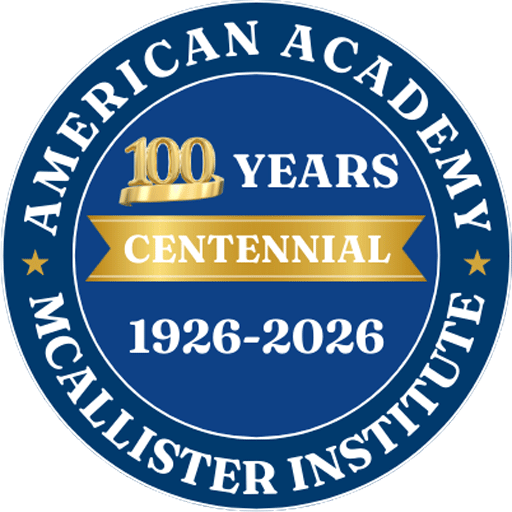
A career in funeral service begins with specialized education that blends science, compassion, and tradition. An associate degree in funeral service, often referred to as a mortuary science degree, provides the foundation for this work, preparing students to handle both the technical and interpersonal aspects of the profession. Coursework typically includes anatomy, restorative art, ethics, and counseling, alongside an understanding of laws and regulations that guide funeral practice.
For those seeking a meaningful and stable profession, a funeral service degree offers more than academic training; it opens the door to licensure and long-term career opportunities as a funeral director, embalmer, or other essential role in serving families during life’s most difficult moments.
In the sections below, we’ll outline the requirements of a mortuary science degree, the difference between online and in-person funeral service education programs, and the career paths available after graduation.
Core Subjects in a Mortuary Science Degree
Mortuary science is a combination of academic and practical training that adds up to funeral service accreditation. Students must have training in topics as diverse as human biology and grief counseling to perform their tasks successfully. At its core, mortuary science is the study of how to honor life in both the physical and ethical sense using these disciplines:
- Anatomy & Physiology: Detailed study of human body systems, essential for recognizing post-mortem processes, including embalming
- Embalming Techniques: Instruction on properly preserving and sanitizing the body, including vascular and cavity embalming, as well as proper chemical handling protocols
- Restorative Art: Learning how to reconstruct and restore the appearance of the deceased, including waxes, cosmetics, and trauma repair
- Funeral Directing: Organizing the practical and ceremonial aspects of planning and conducting funerals, including cultural traditions, etiquette, and family communication
- Psychology of Grief and Counseling: Learning how to provide emotional support to surviving friends and family, including active listening and other counseling techniques
- Law and Ethics in Funeral Services: Reviewing local, state, and federal funeral laws, including documentation, statistics, cremation authorization, pre-need contracts, and other compliance issues
- Business & Funeral Home Management: Preparing students to manage and operate funeral homes, including accounting, marketing, HR, insurance, and client services in the funeral industry
- Microbiology & Pathology: Studying the diseases of the human body to make informed decisions that keep students and their future staff safe while handling and embalming remains
In mortuary science, these seemingly diverse disciplines combine into one field of study, requiring as much empathy as biology to perform all tasks successfully.
Hands-On Training and Clinical Requirements

In addition to academic studies, “clinical practicum”, which refers to hands-on learning, is a core part of the mortuary science degree path. Students can train in specialized on-campus labs or in working funeral homes under professional supervision. The experience of learning how to embalm, prepare the body, plan the funeral, and interact with the family is an invaluable first step in gaining confidence and practical knowledge before entering the field as a licensed funeral director.
Online vs. On-Campus Study Options
In a modern education setting, many students prefer the logistical freedom of remote or hybrid coursework. When the institution is equipped for remote learning, students can receive video lectures, online assessments, and virtual labs to complete many of the on-paper requirements for a mortuary science degree.
Hybrid and remote learning plans can be effective for professionals and veterans who may not be able to logistically balance current careers with an on-site education.
Career Paths After Graduation

After graduating with a degree in mortuary science, various career choices open up, including consultancy opportunities. These include:
- Licensed Funeral Director
- Licensed Embalmer
- Mortuary Manager
- Pre-need Consultant
- Funeral Home Owner
- Crematory Operator
- Grief or Bereavement Counselor
In each career path, graduates will achieve emotional and financial rewards for their hard work in learning the discipline, though additional licensing or accreditation are often required. For example, grief and bereavement counselors require additional training to become certified.
In both urban and rural communities, these positions are in continuous demand. High-quality mortuary services can be a significant benefit for a grieving family, making it essential for students to graduate from an academic institution that respects the craft of mortuary science and prepares them for the real-world benefits and challenges of their new career.
Contact an Experienced Funeral Education Provider to Start Your Career Today
Mortuary science degrees are career-focused for those who want to serve the families of the recently deceased with compassionate services, tested skills, and professional planning. At AAMI, students have received quality education and job-readiness training in funeral services for over 90 years. Our goal is to teach not only the practical knowledge of mortuary science but also to reinforce the emotional and ethical services required to perform funeral duties effectively.
Though the profession requires a rare blend of scientific learning, emotional strength, and detail orientation, AAMI supports students with rigorous yet flexible programs. Create an application or contact our team today to learn how we bring integrity and professionalism to the study of mortuary science, helping students and professionals learn and grow in this challenging yet rewarding field.
FAQs
How long does it take to become a mortician?
Associate degrees in funeral service often take 2-4 years, depending on the program’s pace (part-time or full-time). After graduating, students must complete a state-mandated internship and pass licensing exams.
Are morticians paid well?
According to the Bureau of Labor Statistics, morticians earn a stable income ranging from $51,030 on average, to as much as $72,970 as seen in New York. Higher income opportunities also exist in the form of management and business ownership roles.
Can you become a coroner with a mortuary science degree?
A graduate with a mortuary science degree may meet the minimum qualifications to be appointed as a coroner. However, many jurisdictions require additional medical, legal, or forensic science education to qualify.
